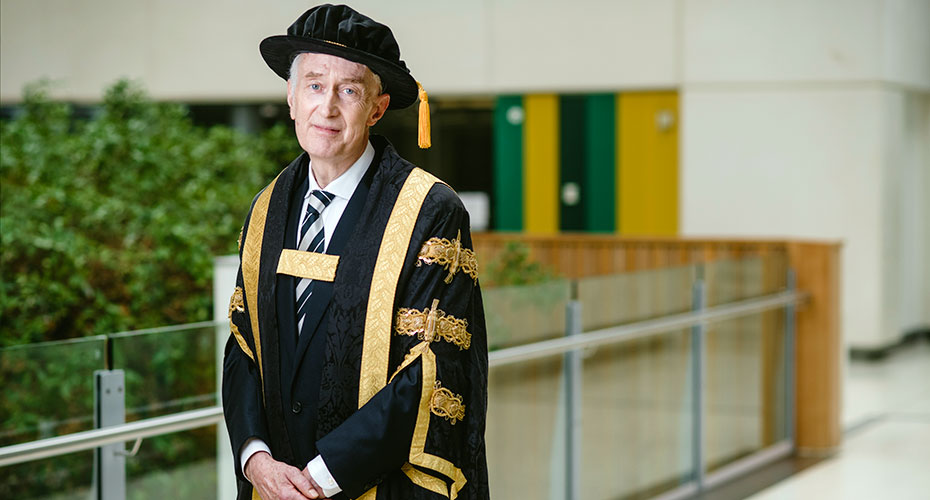The Chancellor
Our Chancellor
Our Chancellor
Sir Michael Barber, is the University of Exeter’s Chancellor, the ceremonial head of the University.
Sir Michael Barber is a world-leading authority on education and public service delivery and the Founder and Chairman of Delivery Associates. He holds an Honorary Doctorate from the University of Exeter.
On his appointment to the role of Chancellor, Sir Michael said:
It is a huge honour and privilege to be invited to take on the role of Chancellor of the University of Exeter, which is a world-leading institution at the forefront of research, scholarship and teaching. Its ground-breaking work in subjects such as environmental science, medicine and the humanities, is admired around the world. Its students and graduates play vital roles in communities and countries in the UK and abroad. As someone who lives in Devon, I am also constantly aware of the immense contribution the University makes to the West Country as a whole, through its campuses in Cornwall as well as Exeter, and through the research and development it contributes to the regional economy.
Sir Michael is the seventh Chancellor to be appointed by the University of Exeter, since it was created in 1955. He succeeded Lord Myners of Truro, a businessman and former Government Minister.
Michael’s Biography
Sir Michael was educated in York before studying history at the University of Oxford, where he was President of the Queen’s College Student Union. In 1986 he was elected as a councillor for Hackney Council and became Hackney’s first Chair of Education in 1988. He was a teacher from 1979 to 1985 before joining the staff of the National Union of Teachers. He then became a Professor of Education, first at the University of Keele and then at the Institute of Education, London, where he worked on school- and education system improvement. In 1997 he joined the Department for Education.
Sir Michael has an outstanding reputation in the Higher Education sector, having been the inaugural Chair of the higher education regulator, the Office for Students, until March 2021. From January to July 2021 he assisted the Prime Minister and Government on delivering their domestic policy priorities following the pandemic.
From 1997 to 2001 he was the Chief Adviser on School Standards in the Department for Education. In 2001, he founded for Tony Blair the Prime Minister’s Delivery Unit (PMDU) in No10, Downing Street, which he ran until 2005. In this role he was responsible for ensuring delivery of the government's domestic policy priorities across health, education, crime reduction, criminal justice, transport and immigration.
The sustained focus on delivery from the heart of government, and the processes the PMDU developed, turned out to be a significant innovation in government, of interest to numerous other countries and major global institutions such as the IMF and the World Bank. From 2005 to 2011 he was a partner at McKinsey and Company and Head of its global education practice. From 2011 to 2017 he was Chief Education Advisor at Pearson, where he played a key role in Pearson’s strategy for education in the lowest income sectors of the world, especially in fast-growing developing economies. Also during that time he visited Punjab, Pakistan more than 50 times to assist in reforming its education and health systems.
Sir Michael has worked on delivery and system-wide reform in more than 50 countries and is the Founder and Chairman of Delivery Associates. With his leadership, Delivery Associates works with government leaders across the developing and developed world to enable them to deliver their domestic policy priorities. The governments Delivery Associates has worked with include Albania, Canada, Ethiopia, New South Wales in Australia, Peru and the mayors of numerous US and Latin American cities.
For several years Sir Michael was a distinguished visiting scholar at Harvard School of Public Health. He holds honorary doctorates from the University of Exeter, the University of Wales and the University of Warwick. He is also an Honorary Fellow of Queen’s College, Oxford. In 2005, he was knighted for his services to improving government.

